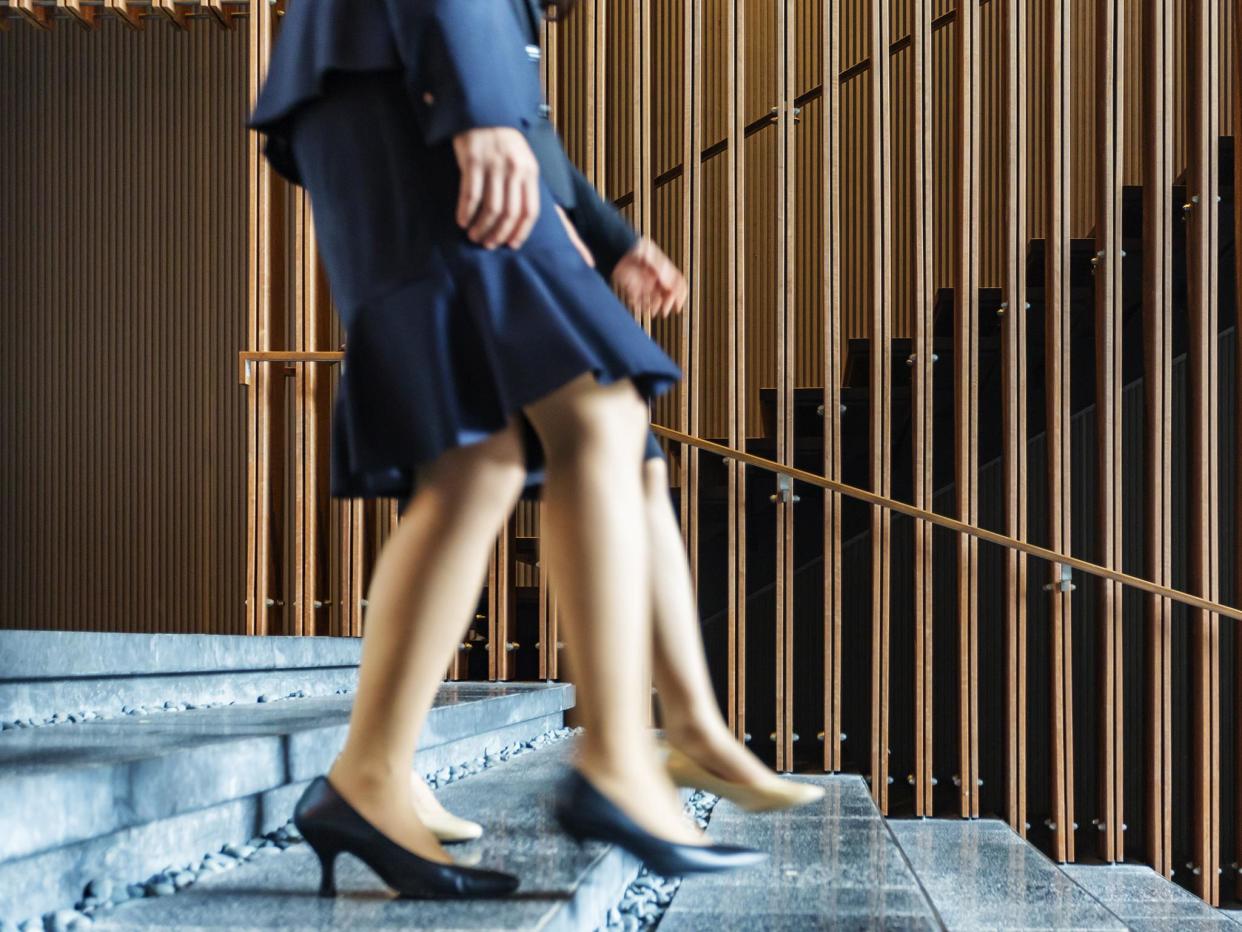More than one in 10 Japanese companies have 'rules on height of womens' heels'

More than one in 10 companies in Japan have formal regulations about the length of heeled shoes female workers are forced to wear, a new study has found.
The research, carried out by the Japanese Trade Union Confederation, found some eight per cent of employees said it was compulsory for female workers to wear makeup.
It comes after a mounting backlash over firms forcing women to wear heels in offices in recent months – with more than 31,000 people having signed a petition calling for the requirement to be banned.
The hashtag #KuToo – echoing the #MeToo movement against sexual assault and harassment – has been widely disseminated on social media. The phrase is a play on the Japanese words for shoes “kutsu” and pain “kutsuu”.
A spokesperson for the Japanese Trade Union Confederation hit out at the rules in the wake of the latest survey of 500 male workers and 500 female employees.
“We will step up activities to remind Japanese society that setting rules for only men or women amounts to sexual discrimination and insisting on them represents power harassment," the union official told Japan Times.
Over a third of respondents argued employers having divergent rules in place for men and women “can’t be helped”, while only 12 per cent of respondents argued such procedures were “inappropriate”.
Some 57 per cent of those polled said their employer had regulations which stipulate the clothing workers are required to wear or other restrictions relating to their appearance.
Such rules were found to be highest in the hotel and food profession where 87 per cent of employees said they had to follow rules around clothing and appearance. Some 71 per cent of workers in the financial and insurance industry said they were subject to equivalent regulations.
The research, which was carried out in October, found 11 per cent of male workers said they were obliged to wear suits.
Jacqui Hunt, of Equality Now, a non government organisation which aims to promote the rights of women and girls, said: "Women are not workplace accessories. Any requirement that female employees wear high heel shoes at work objectifies women and defines them by what they wear rather than the skills they bring to a job.
"It is a manifestation of sexist and stereotyped views on how women should look and behave, and exemplifies the type of sex-based discrimination that subordinates women in the workplace.
"High heel shoes can be painful, cause long term physical damage, and hamper movement. Requiring women to wear them also compounds discrimination against those with medical or physical conditions that prevent wearing a particular type of shoe.
"To tap into women’s underutilised economic potential and build a more inclusive economy, Japan’s highly gendered corporate culture needs to evolve."
The campaigner noted only 13 per cent of management positions are held by women and called for more flexible family working practices to be introduced in the country.
A Japanese minister stoked controversy back in June for arguing it is “socially accepted” and “occupationally necessary” for women to be forced into wearing high heels at work.
Takumi Nemoto, Japan’s health and labour minister, said: “It is socially accepted as something that falls within the realm of being occupationally necessary and appropriate”.
Yumi Ishikawa, an actor and writer who is one of the most prominent figures in Japan’s feminist movement, started a campaign which demands discriminatory dress codes at work are axed.
The founder of the #KuToo movement started a petition after she was forced to wear high heels while she worked at a funeral parlour.
Ms Ishikawa vented her frustrations about the prerequisite to wear high heels at a hotel job in a tweet earlier in the year which was widely disseminated.
A ban on women wearing glasses at various companies across Japan has also sparked outrage after the practice emerged earlier this month.
Critics have compared the prohibition of glasses to stringent rules in some Japanese schools that make children with lighter hair dye their hair black so they fit in with their fellow pupils.

 Yahoo News
Yahoo News 